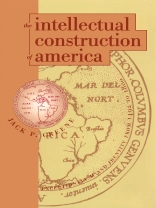Jack Greene explores the changing definitions of America from the time of Europe’s first contact with the New World through the establishment of the American republic. Challenging historians who have argued that colonial American societies differed little from those of early modern Europe, he shows that virtually all contemporary observers emphasized the distinctiveness of the new worlds being created in America. Rarely considering the high costs paid by Amerindians and Africans in the construction of those worlds, they cited the British North American colonies as evidence that America was for free people a place of exceptional opportunities for individual betterment and was therefore fundamentally different from the Old World. Greene suggests that this concept of American societies as exceptional was a central component in their emerging identity. The success of the American Revolution helped subordinate Americans’ long-standing sense of cultural inferiority to a more positive sense of collective self that sharpened and intensified the concept of American exceptionalism.
Giới thiệu về tác giả
Jack P. Greene is Andrew W. Mellon Professor in the Humanities at The Johns Hopkins University. He is author of several books, including Pursuits of Happiness: The Social Development of Early Modern British Colonies and the Formation of American Culture.












